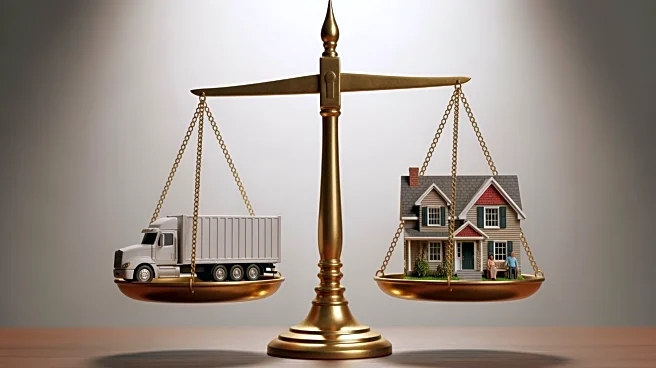What's Happening?
The trucking industry in the United States is facing significant challenges due to what is described as 'jackpot justice'—a system where trial lawyers target truckers with exaggerated claims and lawsuits. These legal actions are said to inflate costs
for consumers, with tort costs reaching $529 billion in 2022. The legal system's manipulation is reportedly causing increased prices for goods and services, affecting every American household. The article calls for legislative reform to address these issues and protect the trucking industry, which employs millions and is vital to the economy.
Why It's Important?
The impact of frivolous lawsuits on the trucking industry is profound, leading to increased costs for consumers and threatening the livelihoods of those in the industry. The legal system's exploitation by trial lawyers is described as a stealth tax on American families, raising prices for everyday goods. This situation highlights the need for reform to ensure fairness and protect the economic backbone provided by the trucking industry. Addressing these legal challenges is crucial for maintaining affordable consumer prices and supporting middle-class jobs.
What's Next?
Legislative reform is urgently needed to curb the impact of 'jackpot justice' on the trucking industry. Proposed measures include capping non-economic damages, increasing transparency in litigation funding, and deterring frivolous lawsuits. The FAIR Trucking Act is suggested as a solution to prevent forum shopping and give federal courts jurisdiction over large cases. These reforms aim to restore balance and protect the trucking industry from financial predators, ensuring its continued contribution to the economy.
Beyond the Headlines
The ethical implications of the current legal practices are significant, with trial lawyers exploiting the system for profit at the expense of justice. The involvement of third-party financiers in litigation raises concerns about the integrity of the legal process. These practices not only affect the trucking industry but also set a precedent for other sectors, highlighting the need for comprehensive legal reform to protect consumers and businesses alike.















